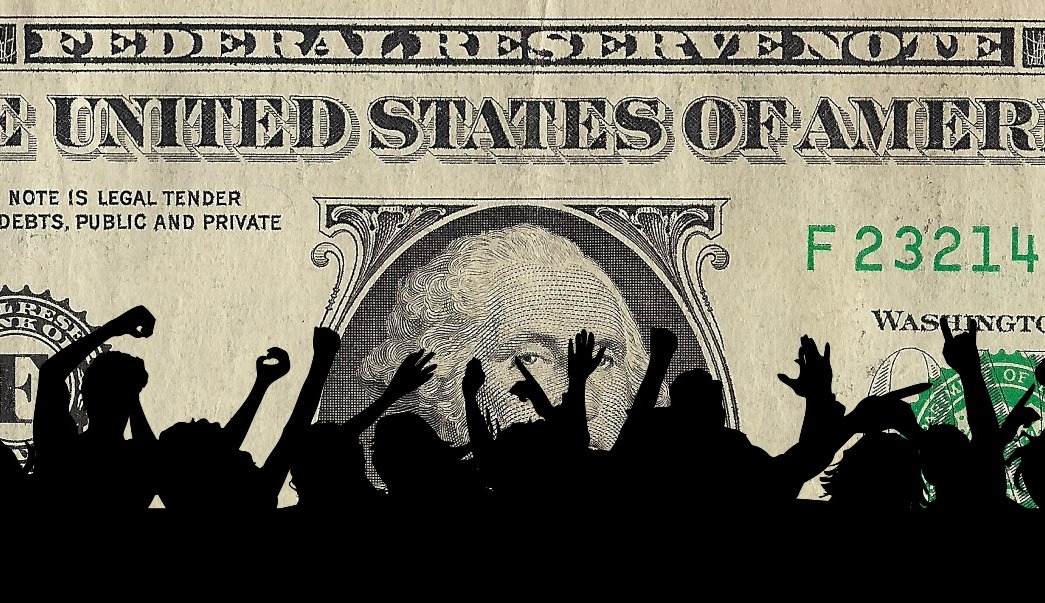
“Consumerism is, quite precisely, the consuming of life by the things consumed. It is living in a manner that is measured by having rather than being.” -Richard John Neuhaus
In a free economy, we each serve distinct roles as both producers and consumers. As producers, we create and serve, leveraging the work of our hands to meet the needs of our neighbors. As consumers, however, we look to ourselves and our own needs. Consumption is good and necessary thing, but it introduces a range of unique pitfalls and temptations.
“Consumption is obviously necessary–there would be no economy without consumers,” explains Raymond J. de Souza. “Consumerism arises when the person becomes–in his own mind or in the view of others–primarily an object that consumes solely for himself, rather than a subject who uses material goods in order to give himself to others.
Whereas in communism, the human person is forcefully reduced to his role as producer, in capitalism, we face a constant temptation to reduce ourselves to consumers — mere “objects of material things.”
When we do so, we distort the very value and purpose of economic freedom.
As Nathanael Blake explains in an essay at Public Discourse, those poisonous effects extend far beyond the mere exultation of material things. Indeed, consumerism distorts our fundamental notions of identity and personhood, yielding to the severe moral confusion we see today.
The impulse to make purchases an expression of the self is rooted in a self-understanding of consumption as identity. Our culture increasingly sees the consuming self as the authentic self—who one is derives from what one consumes. Advertisements promote personal identification with our brand and product choices. They sell us images and associations as much as products. We are encouraged to take pride in our purchases and to see ourselves in flattering terms because of them…
In our contemporary culture, the narratives, roles, and relationships that previously established identities and defined virtue have been pushed aside, and individuals are now encouraged to craft their own identities. We were told that conforming to established roles was stifling and that destroying them would liberate us, allowing us to create our own identities and find fulfillment. However, this approach rarely results in the freedom that its philosophical advocates expect.
Indeed, paired with our growing political tribalism, such a mindset is quick to opt for economic coercion in situations where coexistence ought to be easy. “Self-creation through consumption and tribal affiliation is much easier than self-creation through intellectual or aesthetic effort and achievement,” Blake observes.
Consumption has become excessively politicized, bringing the dismal features of economic pressure and economic warfare to various levels of culture, yielding ripple effects that predictably pollute the waters of an otherwise free society.
Alas, what we begin to see in the market — spreading and manifesting among free, diverse peoples working in free, diverse enterprises — begins to look ever more similar to government-induced conformity, inspired not by spirit or conscience or creativity, but by force and intimidation.
As Blake observes, consumerism has the power to transition us “from a democratic to a tyrannical soul” (cf. Plato), “enslaved to desire, and therefore tyrannical toward others.” Without an accurate understanding of our true identity, our hearts will quickly harden toward our fellow citizens and care little for human liberty or the common good:
The consuming self will seek to control those who produce, and it will not respect integrity in production, such as the freedom of artists to create (or not) in accord with their consciences. It will rage at those who refuse it something, and at those vendors whose views puncture the illusion of achieving virtue through consumption. It will engage in bizarre secular recreations of ritual religious purity (thou shalt not eat chicken sandwiches from a company with a conservative Christian CEO, lest it defile thee).
And thus the consuming self becomes a tyrant, to itself most of all. The attempt at self-creation through consumption brings neither freedom nor fulfillment, but only slavery to desire. In the end, an identity based on consumption will consume itself.
Amid the sea of these cultural challenges, Christians can resist by reaffirming the dignity of man, reminding the world of our identity in Christ, and demonstrating the value and purpose of human liberty.
In an age that’s grown servile to the idols of consumption, we have the opportunity to show what true freedom looks like, showing through the work of our hands, the stewardship of our resources, and a tolerance toward freedom of conscience, that all economic activity — even consumption — is destined for the service of neighbor.
Image: HypnoArt (CC0)

